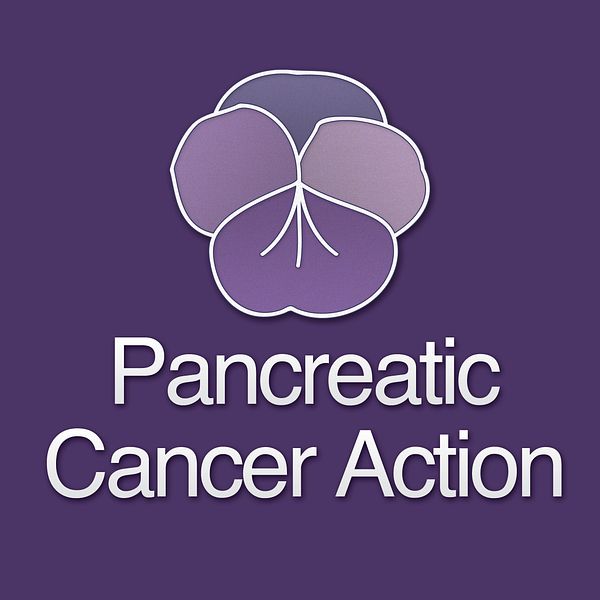Press release -
Lifestyle factors influence greater pancreatic cancer risk in the population.
A study today by the World Cancer Research Fund has demonstrated that poor lifestyle choices mean women in the UK are 17 per cent more likely to develop cancer than the European average. Most of the focus in the media has been on the impact this may have for breast and bowel cancers.
We would like to highlight the fact that with pancreatic cancer, which is the fifth leading cause of cancer death in the UK, risk can also be attributed to lifestyle factors such as smoking and obesity - but impacts both men and women.
Smoking is a confirmed lifestyle risk factor for pancreatic cancer. It is currently estimated that smoking contributes to 25% of all cases and recent research has identified smokers having an increased risk of 74% in comparison to never smokers.
Obesity is also considered as an additional risk factor for pancreatic cancer with one study identifying that a 5 kg/m2 increase in BMI is associated with a 12% increased risk. The Million Women Study found BMI >27.5 is associated with a 20-37% increased risk of pancreatic cancer (compared to healthy BMI).
Where you carry your weight is important: A USA study in 2008 showed that women in the highest quintile of waist-to-hip-ratio have a 70% (95% CI, (10%-160%) greater risk of pancreatic cancer than women in the lowest quintile. With the global incidence of obesity having risen to nearly one in ten of the world’s adult population – double the figure of 1980 - this should be cause for concern.
22 people a day die of pancreatic cancer in the UK. There is only a 3 per cent five-year survival rate - this figure hasn’t changed in over forty years. It is essential therefore that these messages relating to potential risk of the disease are communicated to the public.
UK one-year survival rates for pancreatic cancer are some of the worst in Europe.
Other risk factors include age, diabetes mellitus, hereditary pancreatic cancer and chronic pancreatitis.
Most pancreatic cancer patients are diagnosed too late. Surgery is the only curative option but just 10% are diagnosed in time. Average life expectancy on diagnosis is only three to six months. One-year survival rates in the UK are some of the worst in Europe.
Classic symptoms for pancreatic cancer include painless jaundice, significant weight loss, new-onset of diabetes and new-onset of persistent or significant abdominal pain and or back pain.
For further information on pancreatic cancer visit www.pancreaticcanceraction.org
ENDS
Pancreatic Cancer Action is a national charity, which aims to raise awareness of the symptoms of pancreatic cancer amongst the general public and medical community leading to earlier diagnosis and curative surgery.
For further media information, please contact
Fiona Taylor
01428 658733/ 07841396020
fiona@pancreaticcanceraction.org
Ali Stunt
01428 654740/ 07747017232.
ali@pancreaticcanceraction.org
References:
See NAPC Review for in-depth article written by Pancreatic Cancer Action available online here: http://viewer.zmags.com/publication/90af8eee#/90af8eee/60
Anderson, K et al., (2006) Pancreatic Cancer. In Cancer Epidemiology and Prevention. Schottenfeld, D Fraumeni, JF Jr., (eds.). New York: Oxford University Press pp 721-762. In Pancreatic Cancer (2010) Neoptolemous, J et al., (eds.) New York: Springer pp 5-19.
Bin Bao et al., (2011) The complexities of obesity and diabetes with the development and progression of pancreatic cancer. Biochimia et Biophysica Acta 1815 pp 135-146
Nilsen & Vatten. (2000) A prospective study of lifestyle factors and the risk of pancreatic cancer in Nord-Trondelag, Norway. Cancer Causes Control 11 pp 645- 652
Reeves G, Pirie K, Beral V, Green J, Spencer E, Bull D, for the Million Women Study collaborators (2007) Cancer incidence and mortality in relation to Body Mass Index in the Million Women Study: cohort study. British Medical Journal. Dec 1; 335 (7630): 1134
J. Lou et al., (2008) Obesity and the risk of pancreatic cancer among post-menopausal women: the Women’s Health Initiative (United States) British Journal of Cancer 99: 527-531
Finucane et al., (2011) National, regional, and global trends in body-mass index since 1980: systematic analysis of health examination surveys and epidemiological studies with 960 country-years and 9·1 million participants. The Lancet 377 pp 557-567
Czyzyk & Szczepanik (2000) Diabetes Mellitus and cancer. Eur. J. Intern. Med 11 pp245-252
Huxley et al., (2005) Type II diabetes and pancreatic cancer: a meta-analysis of 36 studies. Br. J. Cancer 92 pp 2076-2083
Greer JB, Whitcomb DC, Brand RE (2007) Genetic predisposition to pancreatic cancer: a brief review. Am J. Gastroenterol 102: 2564-25
Related links
Topics
- Diseases
Categories
- pancreatic cancer action
- obesity
- risk of pancreatic cancer
- pancreatic cancer risks
- pancreatic cancer
- smoking
Pancreatic Cancer Action is a leading UK charity dedicated to ‘changing the numbers’ for pancreatic cancer. Survival rates for pancreatic cancer have not changed in over forty years. With a strong focus on early diagnosis and advocacy, we work to raise awareness of the symptoms and risks of the disease to both the public and medical communities. This, along with our educational and training programmes for medical professionals, is to ensure that more people are diagnosed in time for surgery – currently the only potential we have for a cure.”
